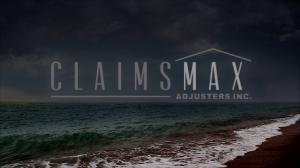After the Storm: How To File An Insurance Claim For Your Home or Business
As a Florida resident, you have three years from the date a storm first makes landfall to file a claim.
As a Florida resident, you have three years from the date a storm first makes landfall to file a claim.”
ORLANDO, FL, USA, September 5, 2019 /EINPresswire.com/ -- Once a major storm or hurricane is over, Florida residents should check to make sure their loved ones are safe. As a property owner, your top priority is filing an insurance claim for any damages on your residential or commercial property. As a Florida resident, you have three years from the date a storm first makes landfall to file a claim. If you wait too long to file a claim, you may miss out on the opportunity. — Samuel Glicken
ORLANDO, FL, September 5, 2019 – If there is major damage after a storm or hurricane, every homeowner or property owner needs to file an insurance claim. An insurance claim is a formal request by a policyholder to an insurance company asking for compensation for a covered loss or to restore the property to it’s pre-loss condition. The insurance company will need details about the incident – the date it occurred and what the extent of the damage was. After a storm, the property owner is responsible for documenting all the damage, preventing any further damage, and reporting the claim as soon as possible. Document everything! Documenting your property before and after your storm is going to help you when filing an insurance claim and makes it easier for your insurance provider to assess the damage done.
A policyholder is required to perform specific “duties after loss”, and failure to do so could jeopardize a reported claim. Before and after the storm, take photos and video footage of the interior and exterior of your home – including your roof. After the storm, prepare an inventory of all the damaged and destroyed property. Take videos and photos of the damage and hold onto any receipts for damaged items and temporary repairs. NEVER throw out damaged or destroyed items, as an adjuster will want to evaluate the damage that was done. If you want to move items out of the area, move them outside the home or building. It’s important that you keep all damaged items and hold off on major repairs until an adjuster inspects your property. You should make smaller, temporary repairs to prevent any further damage. All homeowners are expected to prevent any further damage to the property, which can be done by putting a tarp over a damaged roof or boarding up a broken window.
When you are filing a claim, you should contact a public adjuster from the beginning of the process. A public adjuster is an insurance claims adjuster who provides personalized expert assistance to the policyholder in evaluating and negotiating an insurance claim in conjunction with the insurance company’s adjuster. If you contact a public adjuster too late in the process, they might not be able to offer as much assistance. When you get in contact with a public adjuster, they will be performing an inspection on your home, reviewing your policy and ensuring that you get the coverage for the damages that occurred. Public adjusters hold insurance companies accountable and make sure they do not deny the claim or delay the claim process. Once an insurance claim is denied, the insurance companies view it as a “disputed claim” and it can become difficult to reopen the claim.
Check your insurance policy for what kinds of damages are covered. Most homeowner’s insurance policies contain “hurricane deductibles” which are specific provisions related to damage caused by hurricanes. Homeowners are still responsible for paying a percentage of the insured value of the home, which will range between 2-12%. For instance, if a home was insured for $100,000 with a 2% deductible, the homeowner will still be responsible for paying out of pocket for the first $2,000. Keep in mind that any damage caused by flooding in a hurricane is not commonly covered in homeowner’s insurance policies and a separate flood insurance policy covers this type of loss. Also, damages caused by wind-driven rain or rain blowing through poorly sealed doors and windows are not typically covered by homeowner’s insurance.
Don’t Wait To File An Insurance Claim
Hurricane Dorian spared much of Central Florida and northern Florida. However, the coastal cities experienced the impact and the damage to properties. If you are in an area of Florida that felt the devastation of Hurricane Dorian, don’t hesitate to contact a Florida public adjuster. The longer you put it off means the longer you will have to wait for a claim to be approved.
About ClaimsMax Public Adjusters: Central Florida based ClaimsMax Adjusters is a highly regarded, licensed public adjusting firm that represents commercial and residential policyholders who have insurance damage claims such as but not limited to; fire & smoke, water, flood, sinkhole, wind, hurricane, roof damage, collapse, business interruption, lightning, mold, explosion, theft & vandalism.
Our public adjusters work 24 hours a day, 7 days a week and will help you anywhere in the state of Florida. All Florida public adjusters on our team are a part of FAPIA (Florida Association of Public Insurance Adjusters). We are here when you need us the most. Have a Claim? Let’s Get Started. Call (321)285-6386 or File A Claim Here. Visit www.claimsmaxadjusters.com for more information.
Public Relations
Faceless Technologies
+1 303-357-2375
email us here
Visit us on social media:
Facebook
Twitter
LinkedIn



